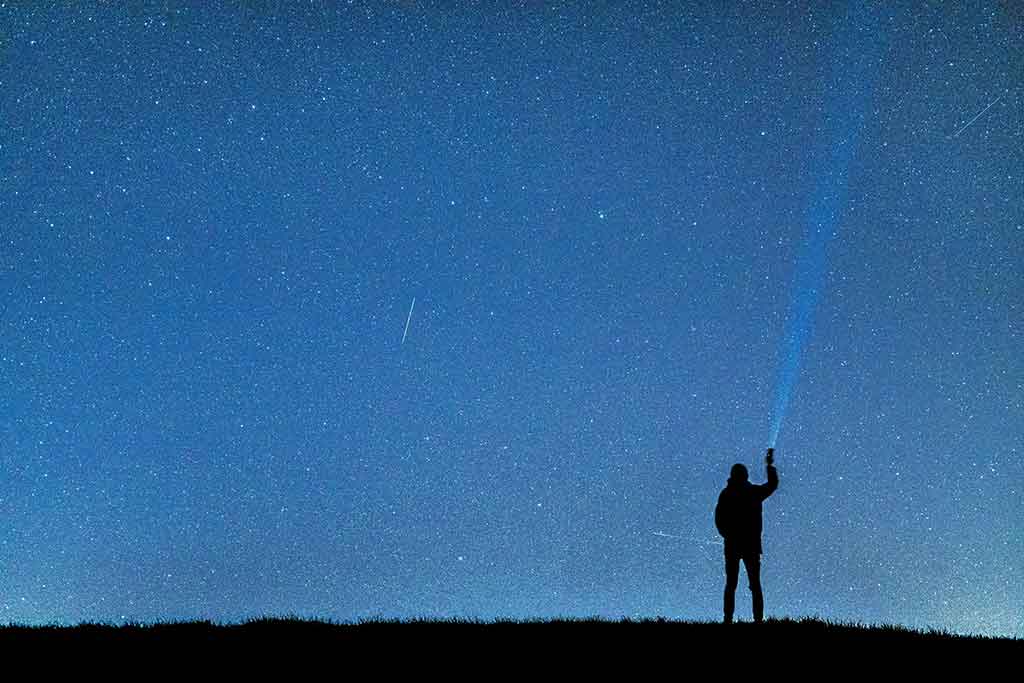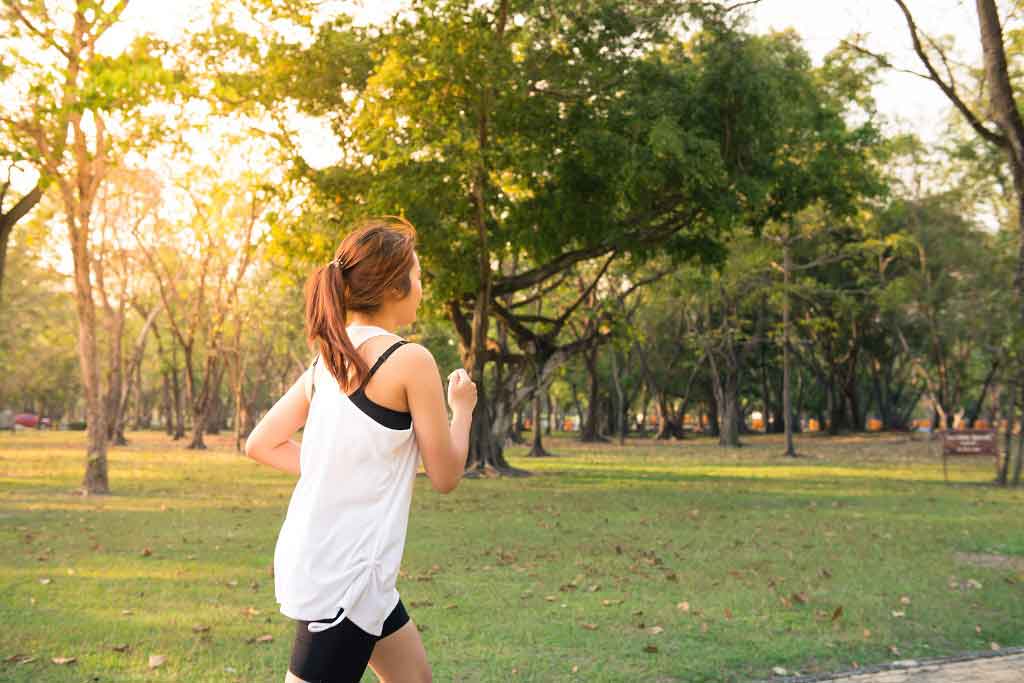'Night owls' slightly more likely to die sooner than 'early birds'
Lifestyle and exercise

'A study of 500,000 people over six years found those who stay up late had a 10% greater risk of premature death than early risers' Sky News reports
"Night owls are ten per cent more likely than early risers to die young," reports The Sun. Researchers who studied more than 433,000 UK adults in middle to older age found that those who described themselves as "definite evening types" had a small increased risk of dying during the following 6.5 years, compared to those who described themselves as "definite morning types".
The researchers said this doesn't mean late nights cause early death, but that a number of factors linked to being a night owl could affect people's health. For example, they said, they had a tendency to eat a less healthy diet, and to take more risks. The study also found evening people were more likely to have a range of illnesses, and were almost twice as likely to have psychological disorders as morning people.
The researchers said part of the problem might be expecting evening types to go along with socially-imposed timetables, such as early morning work start times, when their own body clock was running on a different cycle. This could lead to ill health. Allowing greater flexibility in working hours might help people find a rhythm that is healthier for them, they suggest.
If you do find yourself feeling frequently tired over the course of the day, there are a wide range of potential explanations; some of which are treatable. Read more advice about feeling tired all the time.
Where did the story come from?
The two researchers who carried out the study came from the University of Surrey in the UK and Northwestern University in the US. The study was funded by the University of Surrey Institute of Advanced Studies Santander Fellowship and the National Institute of Diabetes and Digestive and Kidney Diseases in the US. It was published in the peer-reviewed journal Chronobiology International on an open access basis so it is free to read online.
The Sun's coverage of the story was wrong and unnecessarily worrying. They stated: "Around 50,000 died young over the study period due to the stress of being forced up early." In fact, only 10,534 people in total died during the course of the study, from any cause. Only 1,229 deaths were in people aged under 53, and the study could not say whether any of them died "due to the stress" of early mornings.
The Mail Online said: "People who prefer to go to bed late damage their health," which rather misses the point that health damage may arise from being forced to ignore preferences in order to fit in with the demands of work and society.
The Daily Telegraph carried a more balanced and accurate account of the study.
What kind of research was this??
This was a prospective cohort study. This type of study is great for looking at information about large groups of people and spotting patterns.
However, it can't show that one factor (such as evening preference) is the cause of another (death) because so many other potentially confounding factors are involved.
What did the research involve?
Researchers used data collected from an ongoing long-term study of more than 500,000 people aged 38 to 73 in the UK, known as the UK Biobank cohort. These people had health information, including genetic and biometric data collected about them and were followed up through NHS records and periodic regular monitoring. The researchers used information about the 433,268 people who had all necessary information recorded.
People in the study were asked 1 question about their preference for doing activities in mornings or evenings, and identified themselves as either:
- definite morning type
- moderate morning type
- moderate evening type
- definite evening type
- don't know
Researchers then followed them up for an average 6.5 years. They looked at whether morning or evening preference was linked to people's chances of dying from any cause, or from cardiovascular disease, during that time. They also looked at how likely people with different preferences were to have a range of health conditions. They adjusted their figures to take account of:
- age
- sex
- ethnic background
- whether they smoked
- body mass index (BMI)
- socioeconomic status
- how long they slept each night on average
- their health conditions
What were the basic results?
Of the 433,268 people in the study, 10,534 (2.4%) died during the follow-up period.
People who said they were "definite evening types" were 10% more likely to have died than those who said they were "definite morning types" (odds ratio [OR] 1.10, 95% confidence interval [CI] 1.02 to 1.18). The results were similar for men and women.
When the researchers looked at deaths from cardiovascular disease only, they found no one category of morning or evening preference was more or less likely to have an increased chance of death from this cause.
The study also found that people who said they were definite evening types were more likely than definite morning types to have conditions including:
- psychological conditions (OR 1.94, 95% CI 1.86 to 2.02)
- diabetes (OR 1.30, 95% CI 1.24 to 1.36)
- neurological disorders (OR 1.25, 95% CI 1.20 to 1.30)
- digestive conditions (OR 1.23, 95% CI 1.19 to 1.27)
More people in the study said they were definite morning (27%) or moderate morning (35%) types than moderate evening (28%) or definite evening (9%) types.
How did the researchers interpret the results?
The researchers said that people who had a definite preference for evening activity had an increased chance of "a wide variety of diseases or disorders" and "increased risk of all-cause mortality". They advance a number of potential reasons for this, including that "the health of evening types could be compromised by misalignment between their endogenous innate [own] biological [clocks] and the timing of social activities (eg work or meals)".
They suggest either attempting to change people's preferences through therapies such as light exposure in the morning and taking melatonin (a hormone relating to the body clock, only available on prescription in the UK) in the evening; or adjusting work schedules to allow flexibility for people's individual preferences.
Conclusion
Media coverage such as The Sun's could cause unnecessary alarm and is unhelpful for people who may worry that their natural body clock means they are doomed to an early grave.
What the study showed was that the minority of people (9%) who said they definitely preferred doing activities in the evening were slightly more likely to die than those who definitely preferred activities in the morning.
A 10% increased chance of death might sound a lot. But if you think about the absolute risk, it's less worrying. In this study, overall 2.4 people in every 100 died. A 10% increased chance of death would mean an increase of 0.24 in 100 if using average data for all participants. This would mean the overall risk of death for night owls would rise from 2.4 in 100 to 2.64 in 100 – about one quarter of an additional death per 100 people. We don't have the figures to calculate the exact proportion, but it would be around this level.
That doesn't mean they died young, as The Sun said, or that they died from the stress of early mornings.
Crucially, we don't know why they were more likely to have died. It could be because the people in the study who identified as night owls had less healthy lifestyles more generally, or because of other unmeasured factors. The study provides information which may help researchers look in more detail at why some night owls have poorer health, and design interventions to help address this.
If you are a night owl, there's no need to panic about the study. The usual rules about a healthy lifestyle – including getting sufficient sleep, at whatever time you choose to get it – still apply. Find out more about how to overcome insomnia and sleep well.






 Subscribe
Subscribe Ask the doctor
Ask the doctor Rate this article
Rate this article Find products
Find products






